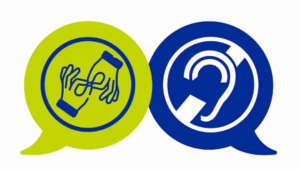Medical Interpretation Certificate
Becoming a Certified National Healthcare Interpreter is an excellent way to advance your career and interpreting ability. This blog contains an easy-to-use flowchart; to help you understand the requirements of the National Healthcare Interpreter Certification. Our goal is to help you to easily navigate through the requirements; while comparing both certifications.
How to become healthcare interpreter? The two main Medical Interpreter Certification:
- The National Board of Certification for Medical Interpreters (NBCMI)
- The Certification Commission for Healthcare Interpreters (CCHI)
Both exams require: extensive preparation, hard work, and dedication to the craft. Global Arena’s Learning & Development programs are excellent resources; to meet the pre-requisite requirements for either certification. We also offer the nationally recognized Bridging the Gap training; both online and in-person in our Philadelphia office.
Why pursue medical interpretation certificate?
Medical interpretation certificate is highly important: it’s more than a passing score on an exam. It’s all the preparation too. Being able to pass a medical interpreting certification exam. Giving you a baseline to determine your skills as an interpreter. Interpreting is built on experience and honesty: interpreters must be able to self-identify areas in which they need improvement. Receiving the training necessary to pass a National Interpreting Certification Exam; allows you to fully focus on your current expertise. You’ll also have opportunities to assess your English and native language skills. Proper training courses include: lectures sections as well as simulated interpreting situations in a safe environment.
Medical interpretation certificate Training ahead of a certification exam; also gives you a foundation in common medical terminology. While self-study is a vital part of being a professional interpreter; an interpreter training course shows you “where to start.” Medical terminology is vast and can be intimidating. Having an overview of bodily systems, functions, and common medical appointments; helps you prepare for assignments regardless of experience level. It’s also important to brush up on updates to medical terminology the message confusion between: doctors, interpreters, and patients can be inconvenient at best and life-threatening at worst. Having an updated knowledge of current medical terminology is vital to your career as an effective language facilitator.
HIPAA and OSHA regulations also apply to the interpreters
It is extremely important for the interpreter’s safety to understand and implement the OSHA regulations in a health care environment. When it comes to HIPAA, it is necessary to understand how to manage sensitive patient information to avoid incurring in any unnecessary liabilities.
Finally, alongside the benefits of receiving proper interpreting training; having a nationally-recognized Medical Interpreter Certification is highly useful. A certified interpreter is much more likely to receive agency priority: first choice of available assignments. Having an Interpreting Certification also opens doors to permanent interpreting positions. Hospitals, school districts, government offices, museums and research labs, and universities; often recruit professional interpreters for full-time jobs. Though they’re not always specifically “medical interpreting” jobs; an interpreting certification of any kind shows your superior training and commitment to support and service multilingual populations. Hiring managers appreciate the initiative; it takes to secure a certification and the expertise that comes with standardized training. Working in one of these environments is immediate career advancement: stability, job security, and guaranteed work in your field. Adding a National Interpreting Certification to your résumé greatly enhances your hiring desirability.

The National Board of Certification for Medical Interpreters (NBCMI)
The mission of the National Board is to support improved healthcare outcomes, patient safety, and patient/provider communication. At the NBCMI they promote standardization by elevating the standards and the quality of this interpreting training. Their training standards culminate in an established and validated certified.
The National Board of Certification governs the Hub-CMI credential and CMI certification programs. The NBCMI is an independent division of the International Medical Interpreters Association (IMIA).
The NBCMI offers interpreting certification in Spanish, Russian, Mandarin, Cantonese, Vietnamese, and Korean. Prior to 2018, the Spanish certification required an extra level of accreditation. Now, the program is standardized and made more transparent, inclusive and accessible for all languages offered.
The NBCMI lists their objectives on their website; which also offers additional information about their offerings:
The purposes of the National Board are to:
- Develop, organize, oversee, and promote a national certification program in all languages.
- Promote patients and providers: working with credentialed healthcare interpreters who have met minimal national standards; to provide accurate and safe interpretation.
- Ensure credibility of national certification by striving to comply with national accreditation standards including transparency, inclusion, and access.
The NBCMI Board of Directors consists of 10-12 members from various fields, as well as a member of the public. The Board Members are recruited through a Nominating Committee and then voted in by existing Directors.
Certification Commission for Healthcare Interpreters (CCHI)
CCHI’s purpose is: to develop and administer a comprehensive national healthcare interpreter certification program. In doing so, CCHI assesses medical interpreters’ competence with an exam; much as the NBCMI does. This helps ensure interpreting quality in healthcare settings; regardless of interpreting modality. CCHI brings together medical interpreters; representatives from national and regional non-profit interpreting associations and language companies. They also work with community-based organizations, educational institutions, healthcare providers, and advocates for individuals with limited English proficiency (LEP).
CCHI provides several Healthcare Interpreting programs such: the Core Certification Healthcare Interpreter™ (CoreCHI™) and Certified Healthcare Interpreter™ (CHI™) certifications for interpreters. CCHI also provides CEAP (Continuing Education Accreditation Program) for educators/trainers.
The CCHI offers a wide variety of freely available publications to medical interpreters and those interested in the industry. These publications include: handbooks, ethical texts, reports, fact sheets, and briefs. The CCHI also includes up-to-date research projects on interpreting theory and assessment.
At Global Arena, we are not advocating for one or another National Medical Certification. Both initiatives have a strong foundation and are proven to be highly recognized. The aim of this blog is to give you, the interpreter, all the necessary information so you can make the best decision for your career path.
Interested in obtaining a national Medical Interpretation Certificate?
Global Arena has compiled all the essential information needed for interpreters; looking to obtain a national medical interpretation certificate. Use our Path to Medical Interpreter Certification to determine which one is right for you. The below flow-chart lists the requirements and also the necessary steps to elevate your Medical Interpretation Certificate credentials. If you need additional assistance, or you have questions about the certifications; we are here to help.
Global Arena’s 16-Hour Interpreter Training
The common denominator for both certifications is the successful completion of a Medical Interpreter Educational program. This program must meet NBCMI and CCHI standards for Interpreter Training. A Certificate of completion is the only acceptable proof. Global Arena can help you to comply with this requirement with its 16-hour Interpreter Training Program.
Each class consists of four days of live (over zoom) instruction, reviews, an exam, and a certificate upon completion and passing. The course integrates interpreting activities and practice into each module. It’s structured to be interpreting experience-centric: being an interpreter requires training, patience, understanding, and skill. Course focuses include the differences between: bilingual speakers and trained interpreters, the role of the interpreter, and proper conduct. We also cover: best practices, interpreting ethics, industry basics, and “dos and don’ts” for working as an interpreter. We’ll discuss common medical, legal, and school terminology; and how to troubleshoot difficult situations. As we’re currently experiencing a global pandemic; we talk about how to properly use PPE during in-person interpreting. The course also allows practice and discussion about telephonic interpreting (OPI) and video-remote interpreting (VRI)
Contructing your interpreting network
Our training has the added benefit of building your interpreting network: as you’re working together, the classes form a community. You’ll meet other interpreters of widely varying skill levels; learn from their expertise, and work closely to build your own. Our activities and discussions are excellent times to “troubleshoot”; interpreting scenarios and share experiences. You’ll also have the opportunity to discuss the interpreting industry: particularly in improving conditions through standardized practice. Interpreting is more than a job: it’s skill, service, and vitality for non-English speaking communities in America. Global Arena’s 16-hour Interpreter Training is committed to building the foundation for a successful interpreting career.
The course is especially targeted to interpreters who are starting out and want to hone their skills. It’s also perfect for experienced interpreters who’d like to brush up on their industry knowledge; and work through skill-building activities. The 16-hour Interpreter Training also provides a certificate of interpreting training completion. You’ll be able to use this certificate to help you through the national certification process. For more information and sign-up, visit our Global Arena Interpreter Training page.
Bridging the Gap Medical Interpreter Training
Global Arena also offers the Bridging the Gap Medical Interpreting program: a 40-hour training based on medical interpreting theory. For over 20 years, Bridging the Gap has been preparing bilingual individuals to work as effective, competent, and professional medical interpreters. Bridging the Gap was developed by the Cross-Cultural Healthcare Program and is a pioneer on this training. This vast experience has made Bridging the Gap a pioneer in the field of healthcare interpreter training. The 40-hour training covers essential topics; such as interpreter roles and ethics, interpreting skills, medical terminology, the impact of culture, and an overview of the health care system. The class is centered around lecture-style sessions interspersed with interpreting activities.
Bridging the gap is a nationally recognized program designed to offer a foundation for new interpreters. A certificate of completion is provided to you upon successful completion of the program and final test. Our ratio of success is 100% and we have trained over 160 interpreters during the last 4 years. You can register for Bridging the Gap through our Training information page.
So…What’s your next step?
Our goal is to give you a through overview; about how to become a professional interpreter. If you have read up to here, that means that you want to become a nationally certified medical interpreter. There are many programs out there that will help you to obtain the necessary basic formal education to apply for the national medical certification. When choosing Global Arena as part of your path to the national medical interpreter certification; you are choosing the experience of an agency that’s been operating for over 25 years; has developed and adopted industry standard trainings and has an ultimate goal to ensure full compliance when providing interpretation services to its clients.
If you have questions or require additional assistance, please do not hesitate to contact us.

You can download this atachment.




